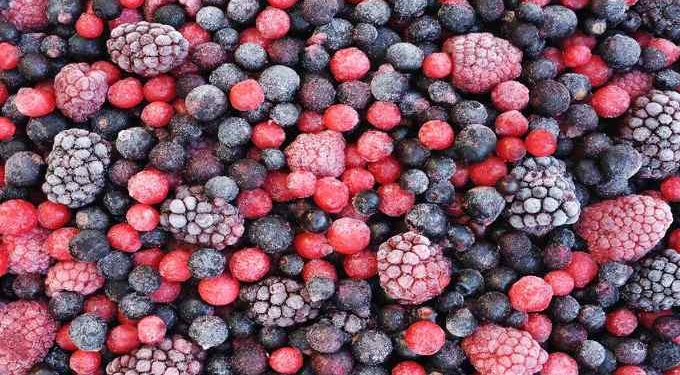
By Melissa Breyer | Treehugger
While fresh food is the foodie darling, there are times when frozen food can actually be better.
In the era of fresh clean food, the freezer and its contents often get a bum rap, but I'm here to defend them. Aside from the convenience of having food in various states of preparedness on hand, frozen food products have a lot more benefits as it keeps things from spoiling and going to waste, and some frozen items actually have better nutritive value than their fresh counterparts, as counterintuitive as that may seem.
With this in mind, I was happy and not all that surprised to see Environmental Working Group’s (EWG) new roundup of tips for people who want healthy frozen food, and who want to save time and money, and reduce household food waste all at the same time. “While fresh food is typically the best option, consumers don't need to bypass all options in the frozen aisle,” the analysis notes.
Last year I wrote about six frozen foods everyone should consider, a subtle love letter (a friendship letter?) to frozen food – there is a lot of overlap with EWG’s list. So rather than just being repetitive, I thought I’d highlight the parts of the EWG tips that really stand out to me: Namely, the instances in which they note that frozen food is actually the better option.
1. Organic vegetables like whole green beans or peas
Unless I am getting green peas as fresh as can be, like still warm from the sun, I generally prefer frozen – peas past their short prime are not nearly as sweet and tender as their frozen brethren since the freezer-aisle ones are frozen right after harvest. EWG adds:
Frozen green beans are half the cost of fresh ones and retain more of their vitamin A and C content than other frozen vegetables. Similarly, frozen green peas are one of the cheapest frozen vegetables and retain more of their vitamin C content than fresh peas that have been stored for five days.
2. Organic fruits like whole strawberries or blackberries
I love frozen berries for their ability to provide a quick and delicious addition of fruit. Their texture is forever transformed by freezing, but they're great for brightening up any number of dishes – think oatmeal, cereal, ice cream, muffins, cakes, pancakes, cocktails, smoothies, and smashed with sparkling water for a lovely soda alternative. Fresh berries may be the goal, but they have a short shelf life, which is why frozen ones are much appreciated. EWG adds that frozen berries are:
…superior to dehydrated berries, which can lose up to 50 percent of their original vitamin C and 70 percent of their folate content after being exposed to high pressure or temperatures. Compared to frozen versions, vitamin C content was 44 percent lower in freeze-dried strawberries. As an added bonus, frozen blackberries are cheaper on average than fresh ones.
3. Additive free baby and toddler food
I was one of the moms making her own baby food – a very much-appreciated (and sometimes mocked!) luxury. But for those purchasing baby and toddler food from the store, EWG says this:Consider looking beyond jarred food. In their frozen aisles, some stores are stocking baby food made from fresh fruits and vegetables. Freezing produce helps slow nutritional losses, and helps prevent the growth of most microbes, making preservatives less necessary. And since frozen fruits and vegetables are often harvested at the peak of the season, there's less need to add flavors, or other additives or fillers to improve taste.
Consider looking beyond jarred food. In their frozen aisles, some stores are stocking baby food made from fresh fruits and vegetables. Freezing produce helps slow nutritional losses, and helps prevent the growth of most microbes, making preservatives less necessary. And since frozen fruits and vegetables are often harvested at the peak of the season, there's less need to add flavors, or other additives or fillers to improve taste.















